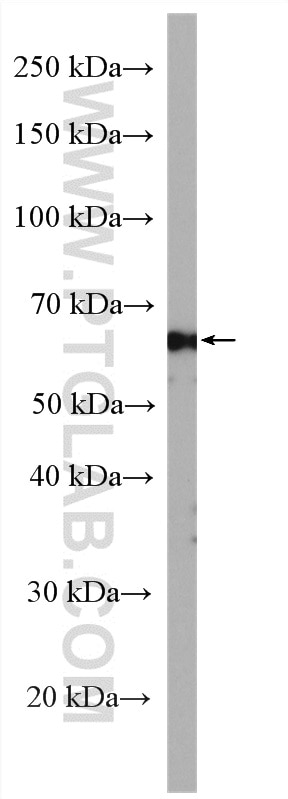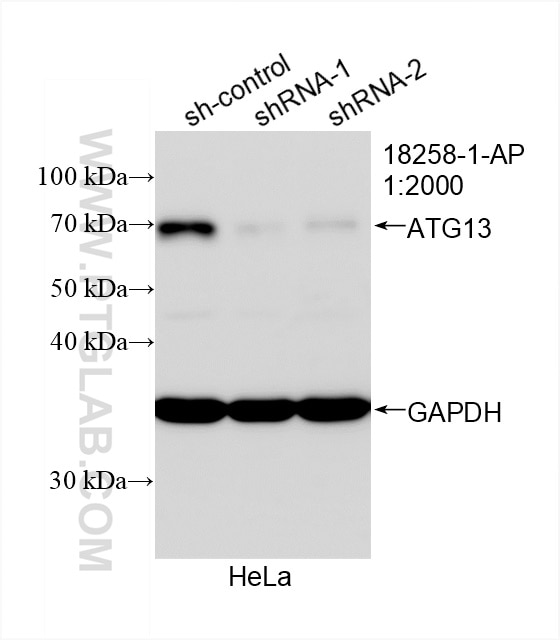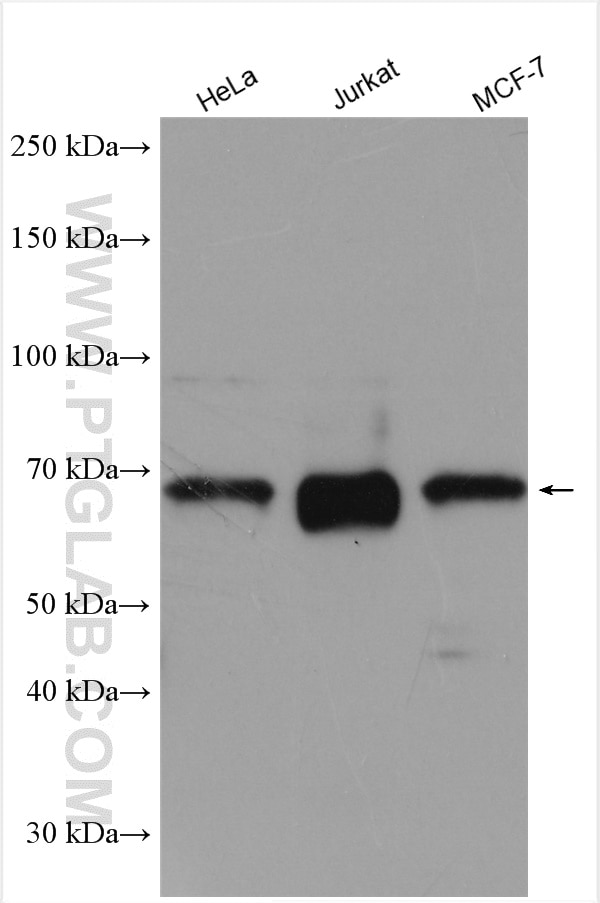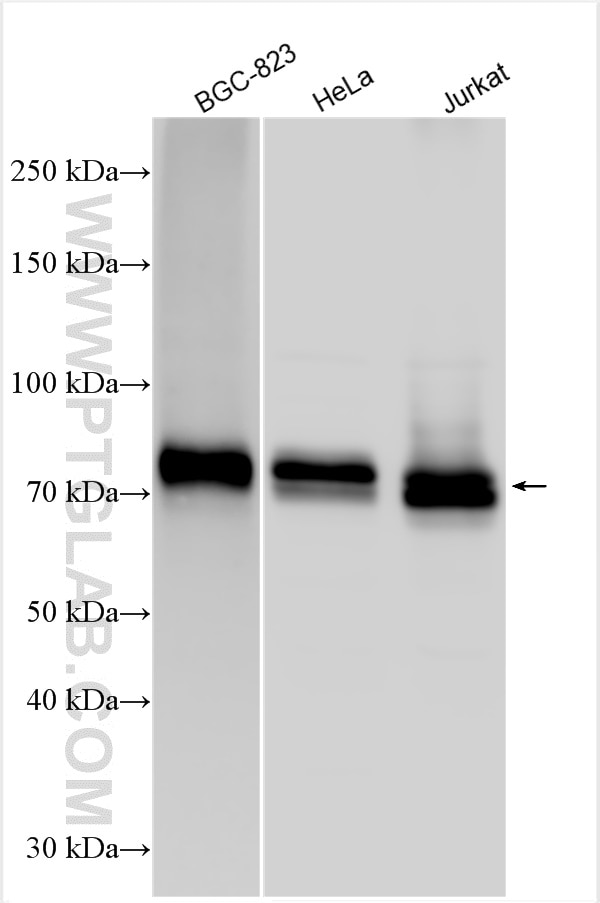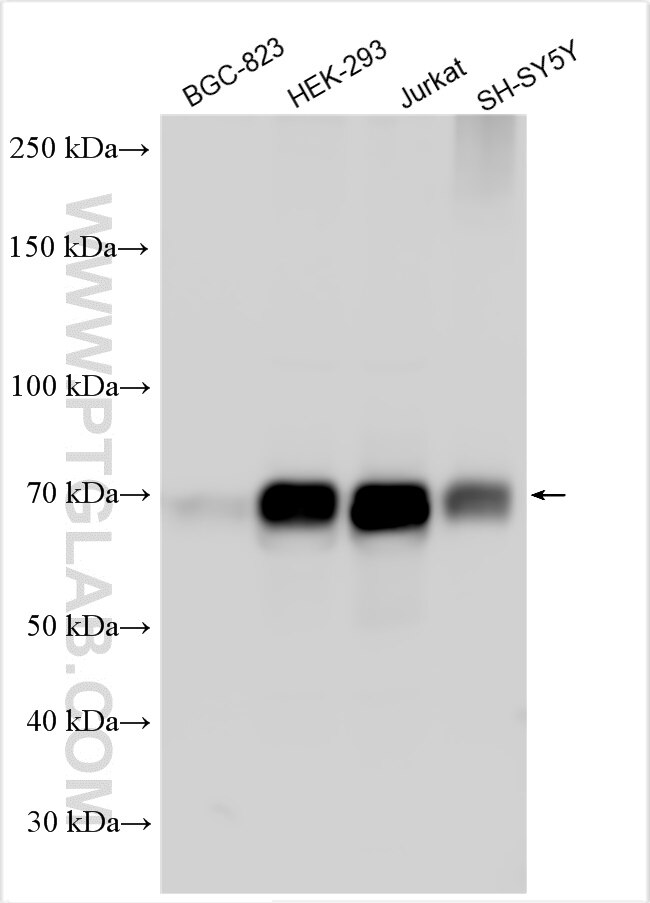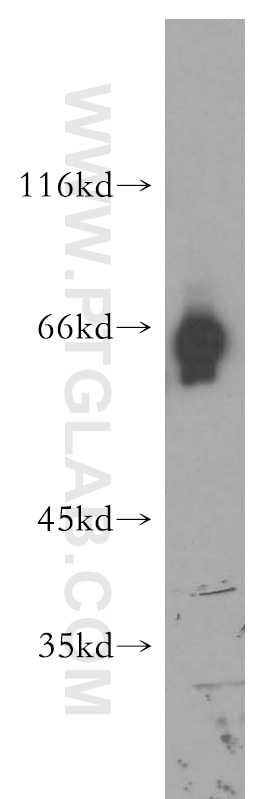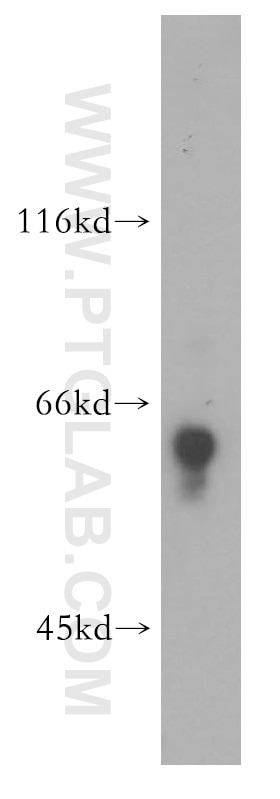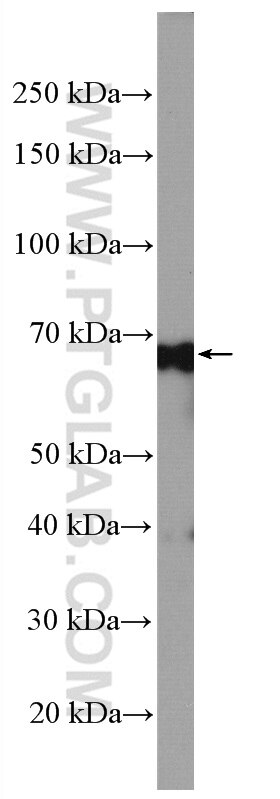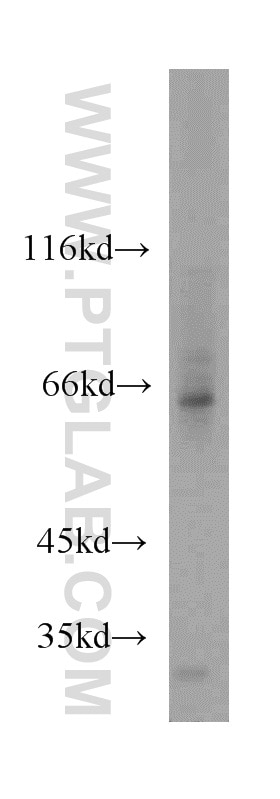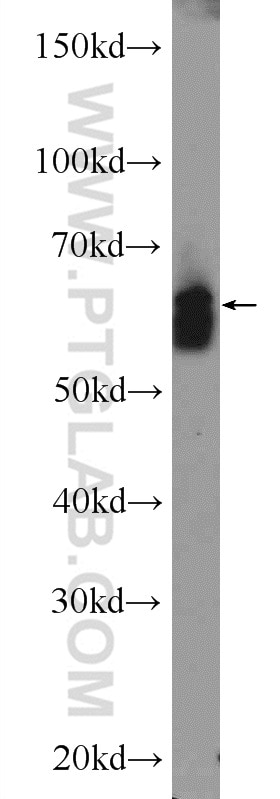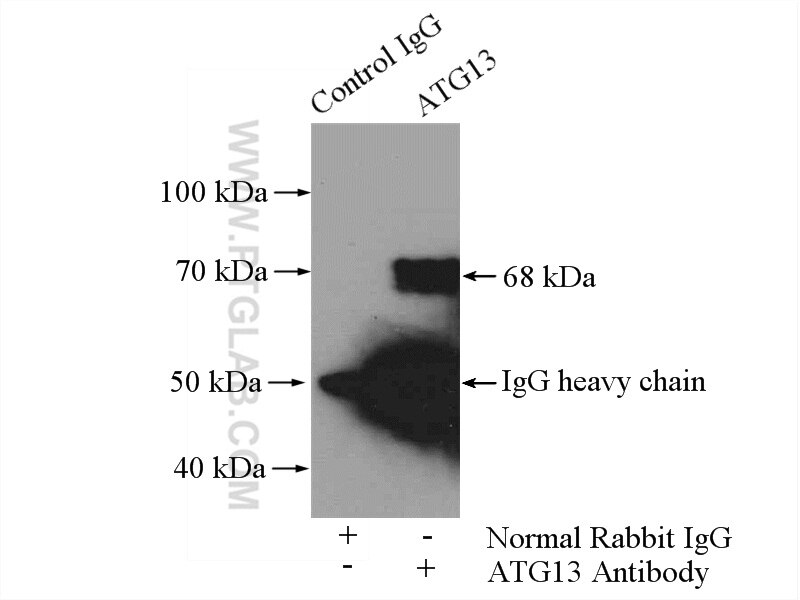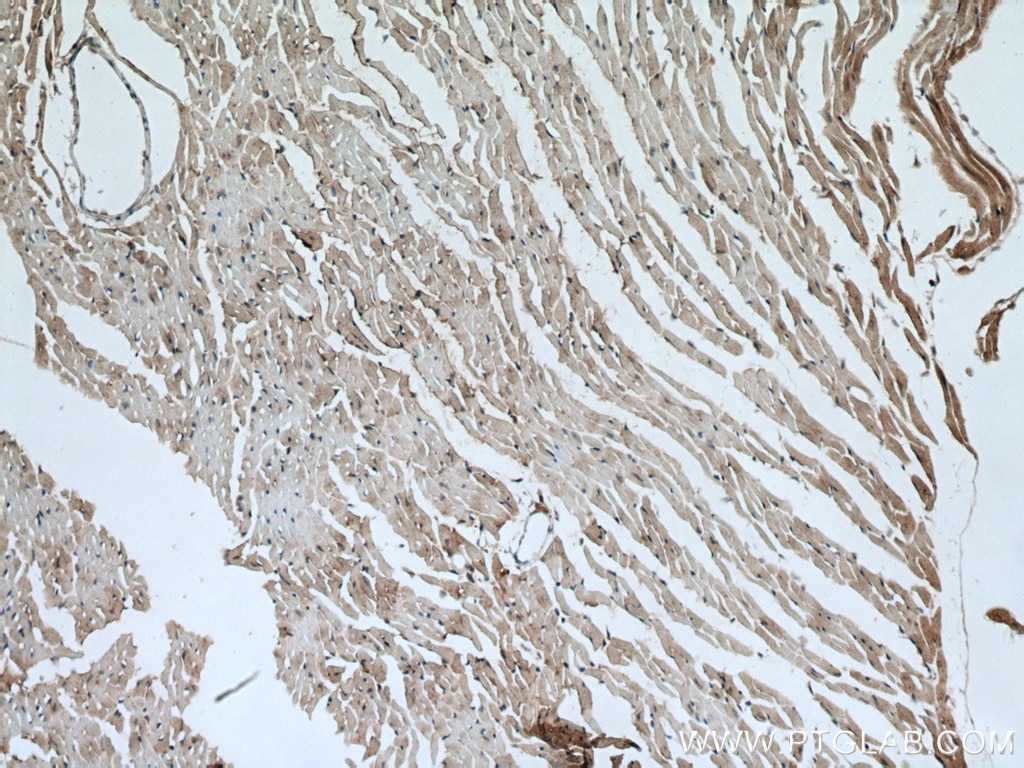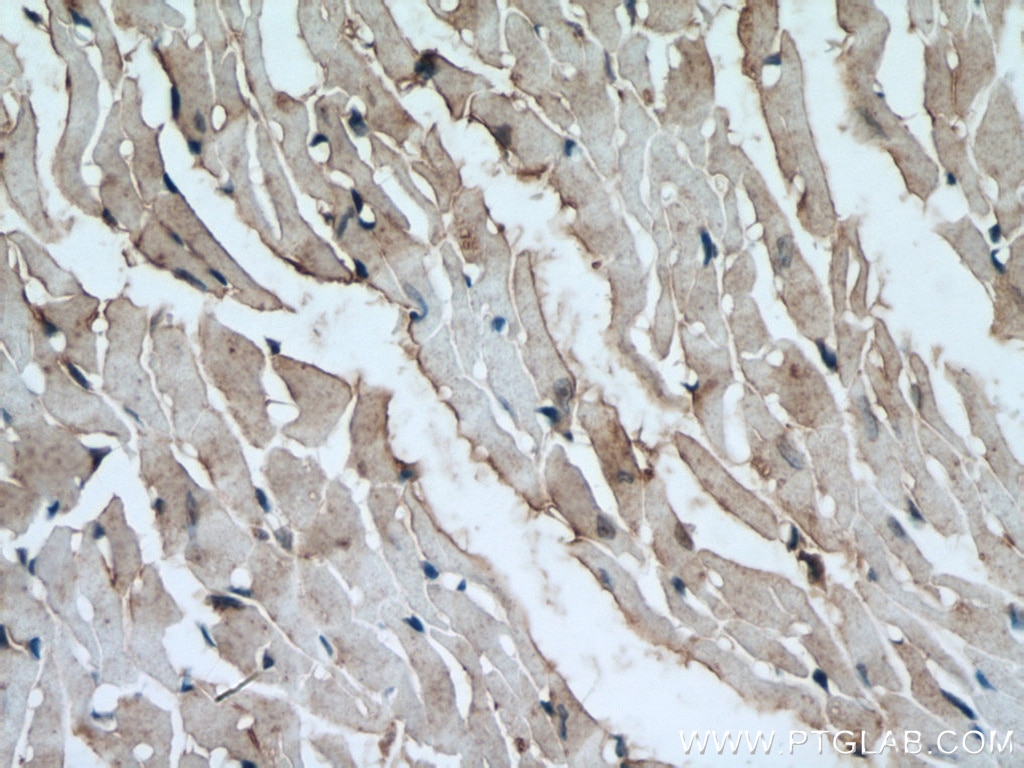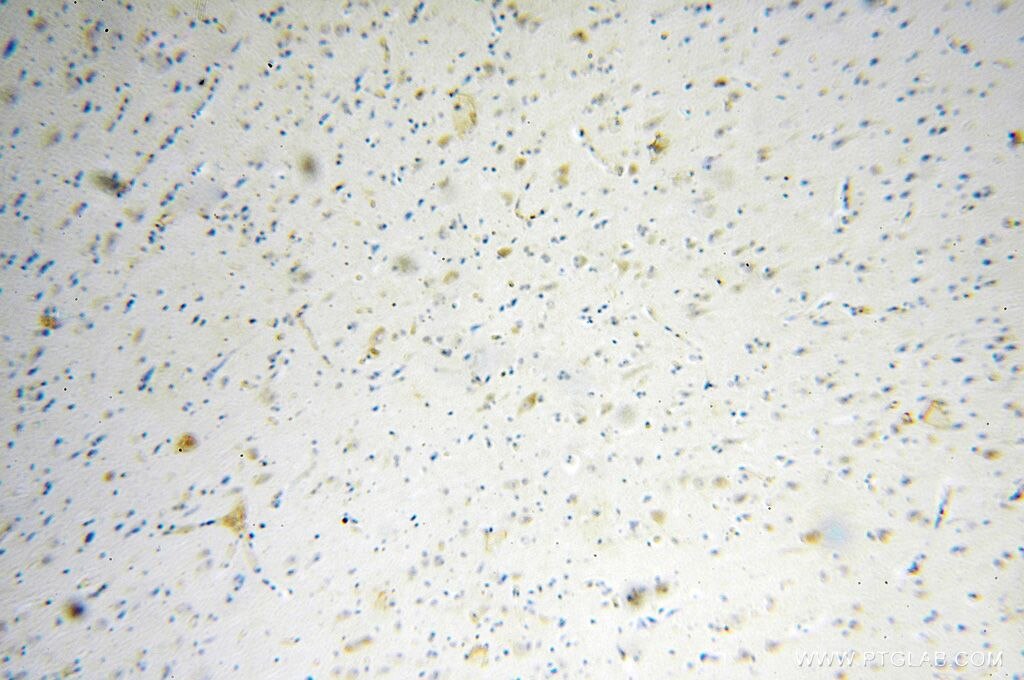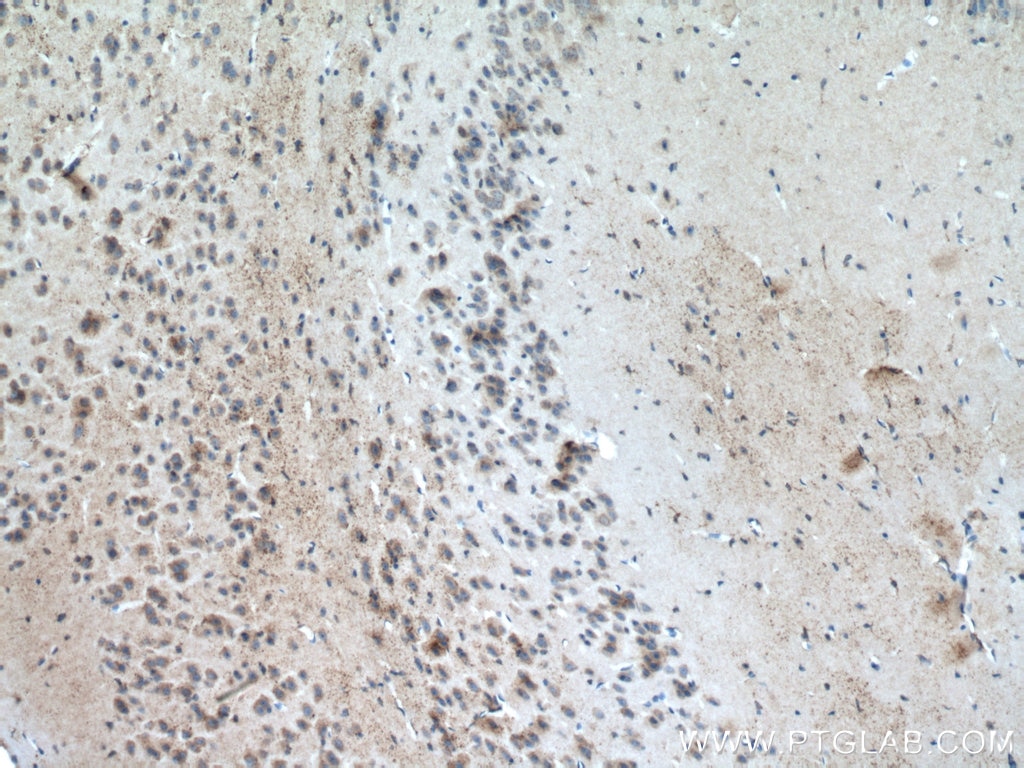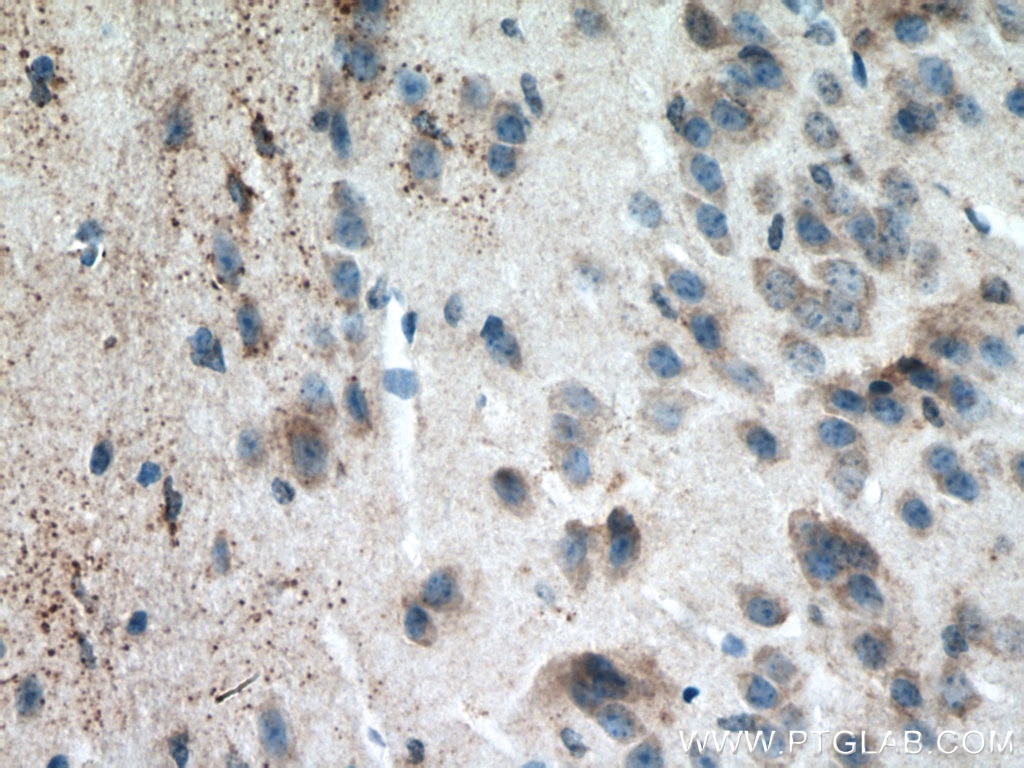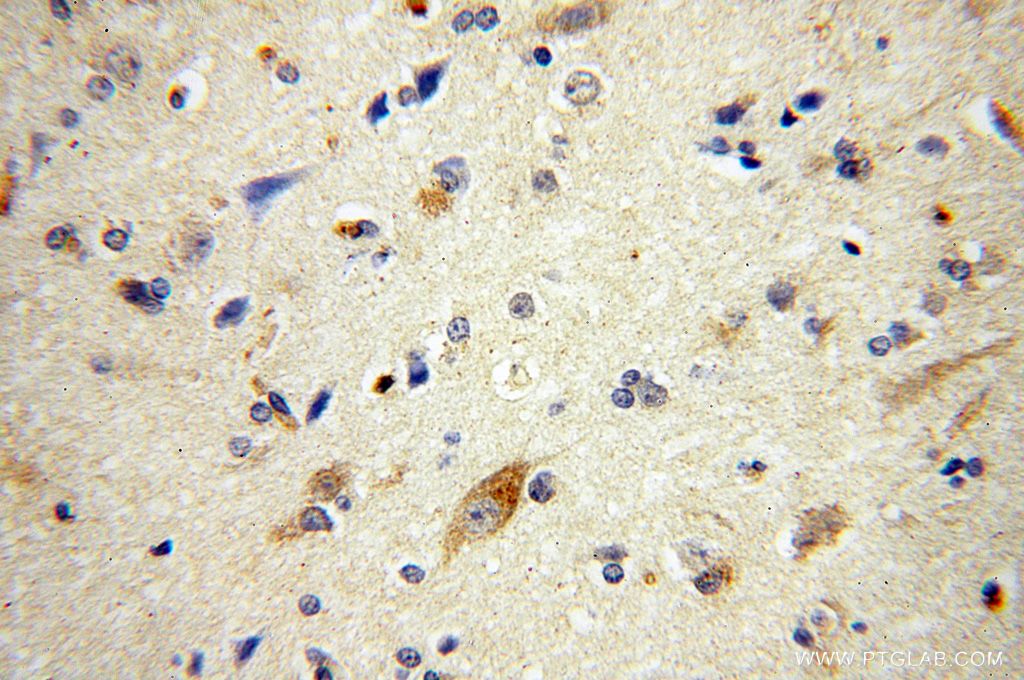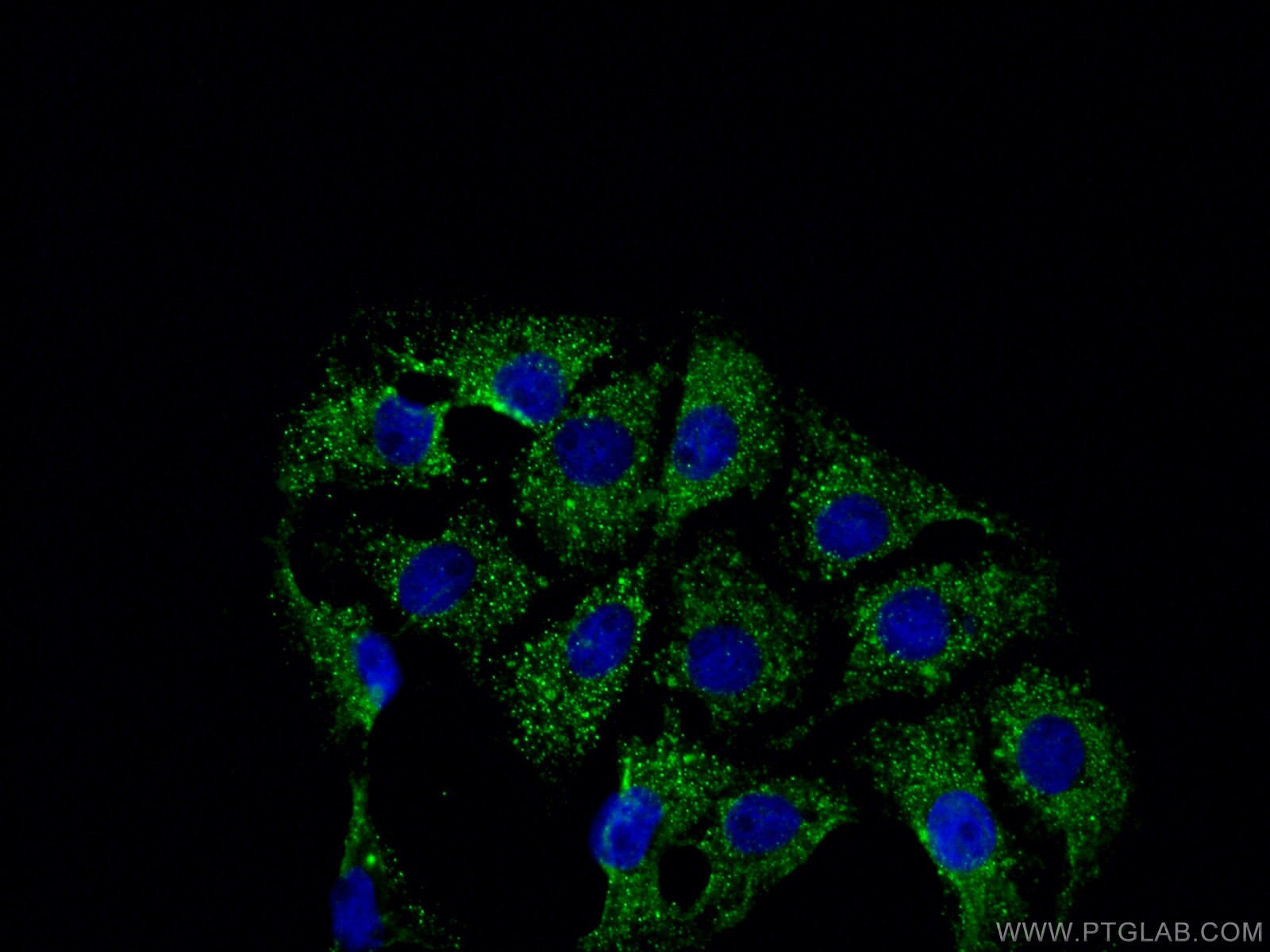Tested Applications
| Positive WB detected in | SH-SY5Y cells, BGC-823 cells, HeLa cells, human brain tissue, mouse cerebellum tissue, mouse testis tissue, mouse thymus tissue, Jurkat cells, HEK-293 cells, MCF-7 cells |
| Positive IP detected in | SH-SY5Y cells |
| Positive IHC detected in | mouse heart tissue, mouse brain tissue, human brain tissue Note: suggested antigen retrieval with TE buffer pH 9.0; (*) Alternatively, antigen retrieval may be performed with citrate buffer pH 6.0 |
| Positive IF/ICC detected in | SH-SY5Y cells |
Recommended dilution
| Application | Dilution |
|---|---|
| Western Blot (WB) | WB : 1:500-1:1000 |
| Immunoprecipitation (IP) | IP : 0.5-4.0 ug for 1.0-3.0 mg of total protein lysate |
| Immunohistochemistry (IHC) | IHC : 1:50-1:500 |
| Immunofluorescence (IF)/ICC | IF/ICC : 1:50-1:500 |
| It is recommended that this reagent should be titrated in each testing system to obtain optimal results. | |
| Sample-dependent, Check data in validation data gallery. | |
Published Applications
| KD/KO | See 2 publications below |
| WB | See 18 publications below |
| IF | See 1 publications below |
| CoIP | See 1 publications below |
Product Information
18258-1-AP targets ATG13 in WB, IHC, IF/ICC, IP, CoIP, ELISA applications and shows reactivity with human, mouse, rat samples.
| Tested Reactivity | human, mouse, rat |
| Cited Reactivity | human, mouse, rat |
| Host / Isotype | Rabbit / IgG |
| Class | Polyclonal |
| Type | Antibody |
| Immunogen |
CatNo: Ag13090 Product name: Recombinant human KIAA0652 protein Source: e coli.-derived, PGEX-4T Tag: GST Domain: 131-481 aa of BC001331 Sequence: ITRVTPAYRLSRKQGHEYVILYRIYFGEVQLSGLGEGFQTVRVGTVGTPVGTITLSCAYRINLAFMSTRQFERTPPIMGIIIDHFVDRPYPSSSPMHPCNYRTAGEDTGVIYPSVEDSQEVCTTSFSTSPPSQLMVPGKEGGVPLAPNQPVHGTQADQERLATCTPSDRTHCAATPSSSEDTETVSNSSEGRASPHDVLETIFVRKVGAFVNKPINQVTLTSLDIPFAMFAPKNLELEDTDPMVNPPDSPETESPLQGSLHSDGSSGGSSGNTHDDFVMIDFKPAFSKDDILPMDLGTFYREFQNPPQLSSLSIDIGAQSMAEDLDSLPEKLAVHEKNVREFDAFVETLQ* Predict reactive species |
| Full Name | KIAA0652 |
| Calculated Molecular Weight | 57 kDa |
| Observed Molecular Weight | 57-63 kDa |
| GenBank Accession Number | BC001331 |
| Gene Symbol | ATG13 |
| Gene ID (NCBI) | 9776 |
| RRID | AB_2130658 |
| Conjugate | Unconjugated |
| Form | Liquid |
| Purification Method | Antigen affinity purification |
| UNIPROT ID | O75143 |
| Storage Buffer | PBS with 0.02% sodium azide and 50% glycerol, pH 7.3. |
| Storage Conditions | Store at -20°C. Stable for one year after shipment. Aliquoting is unnecessary for -20oC storage. 20ul sizes contain 0.1% BSA. |
Background Information
ATG13 is one component protein of the ULK1 complex which is required for autophagosome formation and mitophagy. ATG13 has two nutrient regulatory phosphorylation sites and the phosphorylation status of ATG13 affect regulation of autophagy by modulating enzyme activity and cellular localization of ULK1. Besides, it has been reported the nonautophagic function of ATG13 on cardiac development for ATG13-deficient embryos show myocardial growth defects.(PMID:27387056, 26801615, 26644405)
Protocols
| Product Specific Protocols | |
|---|---|
| IF protocol for ATG13 antibody 18258-1-AP | Download protocol |
| IHC protocol for ATG13 antibody 18258-1-AP | Download protocol |
| IP protocol for ATG13 antibody 18258-1-AP | Download protocol |
| WB protocol for ATG13 antibody 18258-1-AP | Download protocol |
| Standard Protocols | |
|---|---|
| Click here to view our Standard Protocols |
Publications
| Species | Application | Title |
|---|---|---|
J Clin Invest p53/microRNA-214/ULK1 axis impairs renal tubular autophagy in diabetic kidney disease. | ||
Autophagy The ALS-FTD-linked gene product, C9orf72, regulates neuronal morphogenesis via autophagy. | ||
Oxid Med Cell Longev Silencing TUFM Inhibits Development of Monocrotaline-Induced Pulmonary Hypertension by Regulating Mitochondrial Autophagy via AMPK/mTOR Signal Pathway | ||
Stem Cell Res Ther Chaperone-mediated autophagy plays an important role in regulating retinal progenitor cell homeostasis. | ||
Ecotoxicol Environ Saf Downregulation of beclin 1 restores arsenite-induced impaired autophagic flux by improving the lysosomal function in the brain. |

